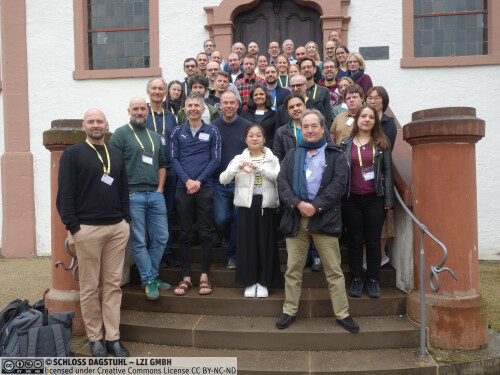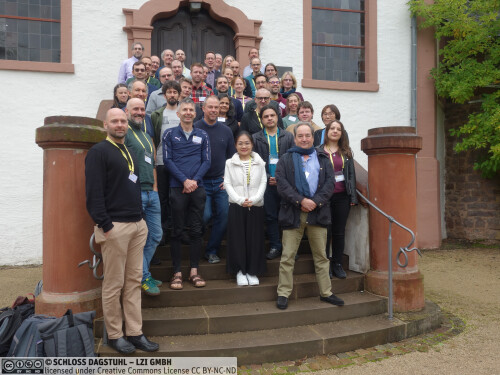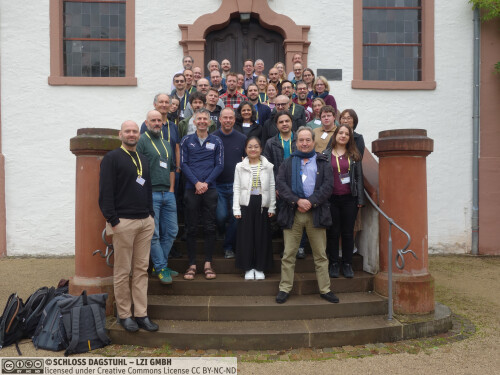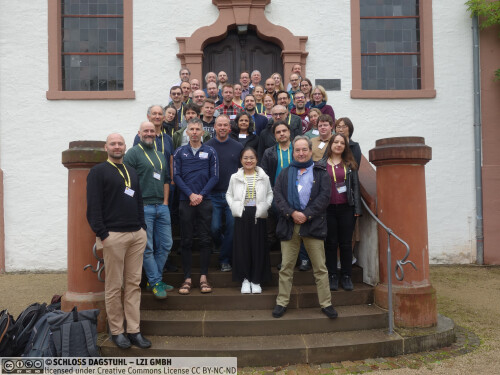Dagstuhl Seminar 25411
Trustworthy Evidence-Based Elections
( Oct 05 – Oct 10, 2025 )
Permalink
Organizers
- Josh Benaloh (Microsoft Research - Redmond, US)
- Peter Rønne (University of Luxembourg, LU)
- Philip Stark (University of California - Berkeley, US)
- Melanie Volkamer (KIT - Karlsruher Institut für Technologie, DE)
Contact
- Michael Gerke (for scientific matters)
- Christina Schwarz (for administrative matters)
Shared Documents
- Dagstuhl Materials Page (Use personal credentials as created in DOOR to log in)
Schedule
Recently, democracies have been challenged at their very core: election outcomes are regularly contested, election procedures questioned, and distrust sown, as exemplified by the aftermath of recent elections in the 2020 Presidential election in the US and the 2022 election in Brazil. Hence, one of the essential qualities of any election, poll, or referendum is that it should provide firm evidence that the announced result truly reflects the will of the electorate.
The last Dagstuhl Seminar on verifiable voting, which took place in 2011, more than a decade ago, addressed the visionary challenge of making elections more trusted by making elections trustworthy. Trustworthiness is important for in-person voting, but also postal and electronic voting. The latter has seen a marked increase in adoption in the last decade, including in legally binding national elections, despite the repeated discovery of serious security flaws of the systems in place.
Elections are complex cyber-physical processes coming in a plethora of very different shapes, from paper-based to electronic, from small student elections to large national elections, and with many context-specific differences. Elections involve multiple stakeholders, processes, and parts, and not least they are centered around voters with different abilities, who all should be able to use the system privately, independently, and accurately.
To improve on this situation and progress towards trustworthy, secure, usable, accessible, and evidence-based elections, we need to involve experts from a wide range of topics to cover the different aspects of electronic voting. In this Dagstuhl Seminar, we want to bring together experts in secure electronic voting, cryptography, verified software, statistics, and human-computer interfaces, coming from academia, industry, and government organizations, to evaluate the past successes and failures, to review the state of the art, to discuss emerging challenges, such as quantum-safe cryptography, and to point to future solutions for secure and privacy-preserving voting methods.
This seminar will include, but not be limited to the following topics:
- Risk-limiting audits for paper-ballot elections
- Evidence-based elections
- Cryptographic voting protocols; new cryptographic methods for verifiable voting
- Security definitions for voting
- Formal verification of protocols & machine-checked proofs
- Verified implementations
- Usability & User experience; Understanding the motivation and perception of voters
- Trust in electronic voting
The structure of the seminar will be a combination: overview of the state of the art, informal talks, and plenary sessions focused on these topics followed by breakout groups on selected topics in the afternoon.
The last day of the seminar will offer working groups dedicated to initiating an interdisciplinary white paper synthesizing the outcomes of the seminar and giving recommendations on the design and implementation of trustworthy evidence-based elections.
 Josh Benaloh, Peter Rønne, Philip Stark, and Melanie Volkamer
Josh Benaloh, Peter Rønne, Philip Stark, and Melanie Volkamer
Please log in to DOOR to see more details.
- Josh Benaloh (Microsoft Research - Redmond, US) [dblp]
- Michelle Blom (The University of Melbourne, AU) [dblp]
- Véronique Cortier (LORIA, CNRS - Nancy, FR) [dblp]
- Alexandre Debant (INRIA - Villers-lès-Nancy, FR) [dblp]
- Thi Van Thao Doan (University of Louvain, BE) [dblp]
- Constantin Catalin Dragan (University of Surrey - Guildford, GB) [dblp]
- David Dueñas-Cid (Kozminski University, PL) [dblp]
- Alexander Ek (KU Leuven, BE) [dblp]
- Bryan Ford (EPFL Lausanne, CH) [dblp]
- Pierrick Gaudry (CNRS - Nancy, FR) [dblp]
- Kristian Gjøsteen (NTNU - Trondheim, NO) [dblp]
- Thomas Haines (Australian National University - Acton, AU) [dblp]
- J. Alex Halderman (University of Michigan - Ann Arbor, US) [dblp]
- Lucca Hirschi (LORIA & INRIA - Villers-lès-Nancy, FR) [dblp]
- Audhild Høgåsen (Schweizerische Post - Bern, CH)
- Reto König (Bern University of Applied Sciences, CH) [dblp]
- Steve Kremer (INRIA - Villers-lès-Nancy, FR) [dblp]
- Oksana Kulyk (IT University of Copenhagen, DK) [dblp]
- Ralf Küsters (Universität Stuttgart, DE) [dblp]
- Vincent Laporte (LORIA & INRIA - Villers-lès-Nancy, FR) [dblp]
- Karola Marky (Ruhr-Universität Bochum, DE) [dblp]
- Jennifer Morrell (University of Minnesota - Minneapolis, US)
- Rafieh Mosaheb (University of Luxembourg, LU) [dblp]
- Florian Moser (famoser GmbH - Allschwil, CH)
- Michael Naehrig (Microsoft - Redmond, US) [dblp]
- Olivier Pereira (University of Louvain, BE) [dblp]
- Thomas Peters (University of Louvain, BE) [dblp]
- Bart Preneel (KU Leuven, BE) [dblp]
- Peter Rønne (University of Luxembourg, LU) [dblp]
- Sylvain Ruhault (ANSSI - Paris, FR)
- Mark D. Ryan (University of Birmingham, GB) [dblp]
- Peter Y. A. Ryan (University of Luxembourg - Esch-sur-Alzette, LU) [dblp]
- Kazue Sako (Waseda University - Tokyo, JP) [dblp]
- Roberto Samarone Araujo (Federal University of Pará - Belém, BR) [dblp]
- Steve Schneider (University of Surrey - Guildford, GB) [dblp]
- Carsten Schürmann (IT University of Copenhagen, DK) [dblp]
- Tjerand Silde (NTNU - Trondheim, NO) [dblp]
- Marcos Simplicio (University São Paulo, BR) [dblp]
- Vanessa Teague (Australian National University - Acton, AU) [dblp]
- Melanie Volkamer (KIT - Karlsruher Institut für Technologie, DE) [dblp]
- Poorvi Vora (George Washington University - Washington, DC, US) [dblp]
Related Seminars
Classification
- Computers and Society
- Cryptography and Security
- Human-Computer Interaction
Keywords
- Voting
- Elections
- Verifiable Voting
- Usable Security
- Risk-Limiting Audits





 Creative Commons BY 4.0
Creative Commons BY 4.0
